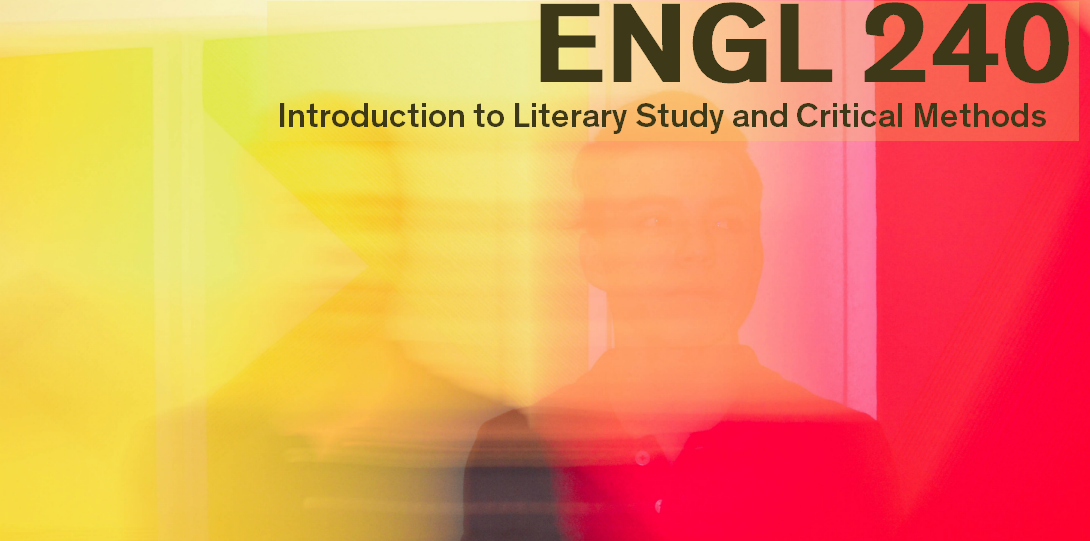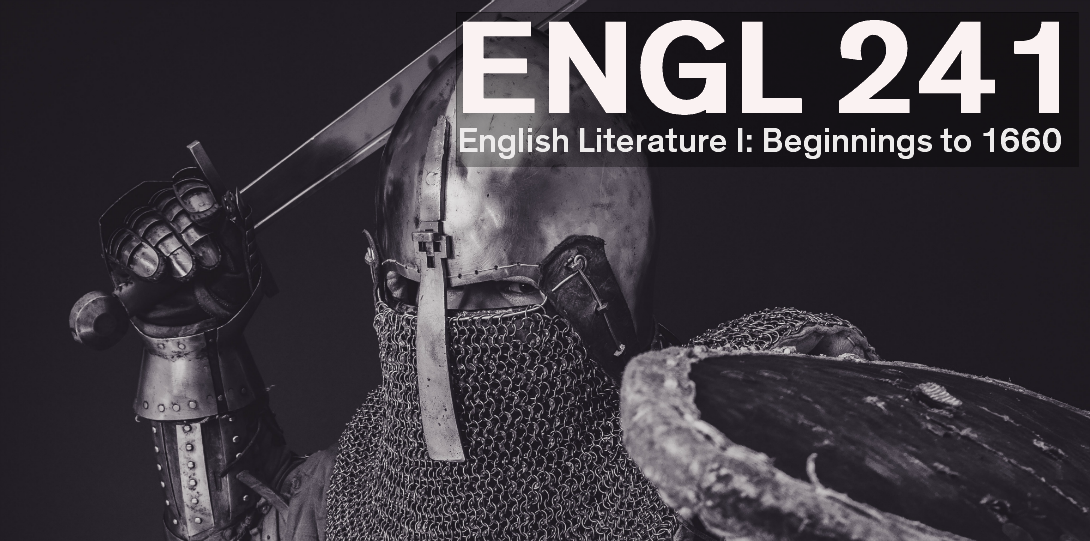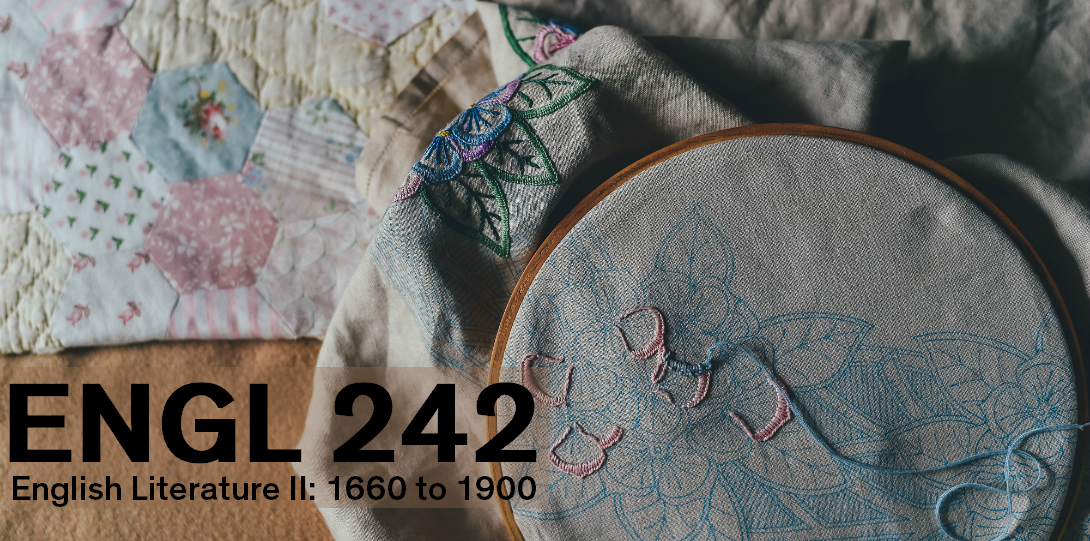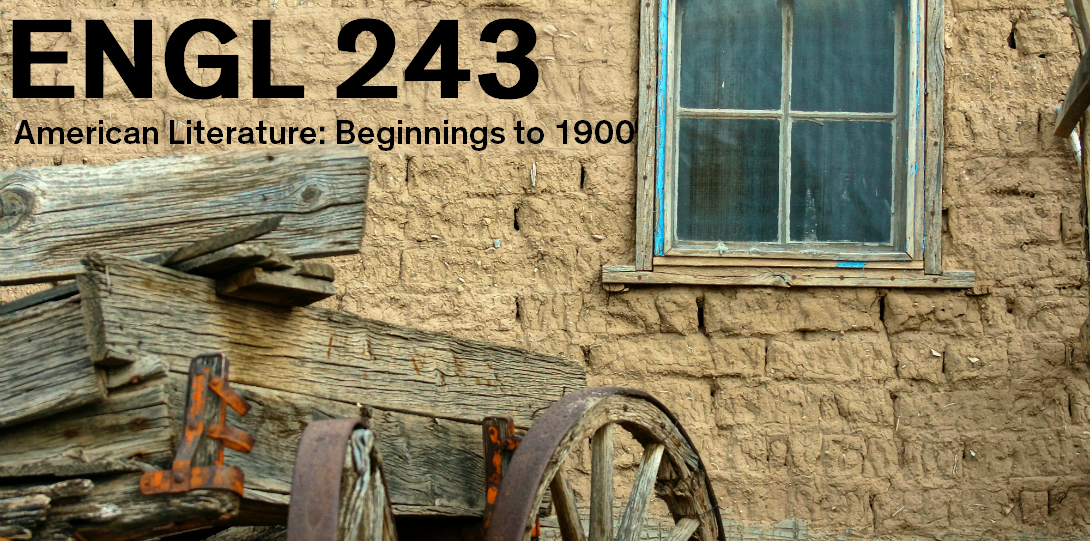English Major
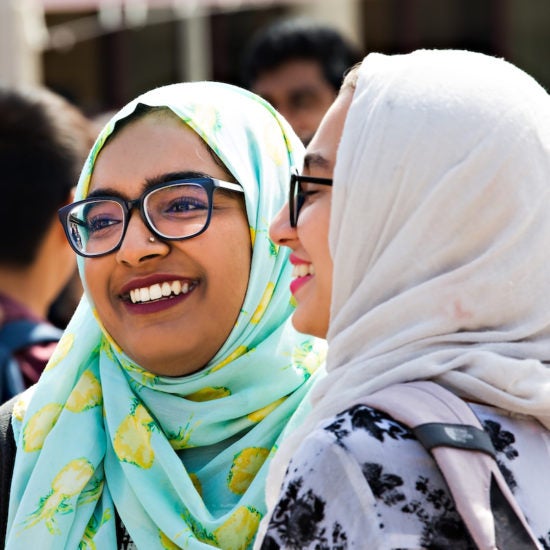
Your understanding of how narratives are formed and how they function to generate meaning and motivate action in the world around you matters.
The skills you will gain in writing, editing, communication, independent research, analysis, interpretation, and critical thinking all matter.
Bottom line: Employers seek out your unique skill set. Studying English matters more now than ever before.
Overview of English Studies
Students studying English are introduced to cultural, historical, political, and critical perspectives and leave the major with increased research skills and heightened theoretical acumen. They also graduate with sharpened analytical abilities, and, of course, a deeper sense of what makes for effective communication, both in oral and written forms.
Our program stresses the “real-world” humanistic skills of being able to analyze the meaning of complicated texts and synthesize abstract or theoretical information from multiple sources. Courses emphasize writing as central to narrative interpretation and critical understanding; employers in a variety of career fields, from corporate to governmental to nonprofit, consistently cite the skills developed by English majors at the top of their lists of desirable qualities in a new hire.
Our curriculum emphasizes both broad and specific skills that students can take into the job market or to graduate school. As an important complement to our curriculum, students have the opportunity to participate in a robust internship program to try out their skills in the workplace while earning college credit.
To learn more about the major and see a sample 4-year plan, undergraduate catalog.
UIC student Jillian Tempestini discusses why she chose to major in English
Resources
-
1 . Intern A majority of graduating English majors choose to pursue one or more internships while earning college credit.
-
2 . Learn Students can pursue independent studies in critical or creative projects, work closely with faculty mentors, and present their research at conferences.
-
3 . Work What can you DO with an English major? A whole lot, as it turns out. English majors work in every sector from business to law, nonprofit to science research, marketing to publishing.
Learn more about these resources
Complete an internship in ENGL 493
Explore more course requirements
Areas of specialization
A UIC English degree prepares students to write well, read well, and think deeply. The English curriculum provides for broad-based knowledge as well as a degree of independent choice and specialization. It is designed to ensure a dynamic and coherent intellectual experience, to train students for further work in the discipline, and to draw on the diverse strengths of the English faculty.
Creative Writing
The Creative Writing faculty consists of specialists in the novel, short story, nonfiction, poetry, fiction, contemporary Latinx literature, poetics, novella, translation, the avant-garde, and more.
Students should plan to study writing in a particular narrative genre (fiction, poetry, or non-fiction) where they will pursue one class to begin the study of their genre and take two advanced writing workshops in small seminar settings. These seminars are also open to graduate-level students to allow for a unique opportunity for critique and collaboration.
For current concentration requirements, visit the Undergraduate Catalog.
Meet some of our award-winning and renowned faculty:
Daniel Borzutsky, Associate Professor
Director at Center for Latinx Literature of the Americas, Poet and translator from Spanish, English, Latin American and Latino Studies
Gina Frangello, Lecturer
Writer of fiction, novelist, essayist
Christopher Glomski, Senior Lecturer
Poet
Christopher Grimes, Associate Professor
Writer of fiction and short stories
Cris Mazza, Professor
Novelist and memoirist
Mary Anne Mohanraj, Clinical Assistant Professor
Writer of fiction and novelist, post-colonial literature scholar
Christina Pugh, Professor
Poet and essayist
Lisa Stolley, Lecturer
Writer of fiction
Luis Urrea, Professor
Writer of fiction, creative non-fiction, and short stories
Professional Writing
The Professional Writing faculty consists of scholars and specialists in the fields of technical writing, new media, popular culture criticism and analysis, digital writing, and more.
Students should plan to take three courses focused on formats of writing applicable to diverse professional environments, such as public relations, technical writing, editing, and publishing. They also have the option of completing a credited internship in their field and site of choice, or completing a writing portfolio under faculty guidance.
For current concentration requirements, visit the Undergraduate Catalog.
Karen Leick, Clinical Assistant Professor
Director of Professional Writing and of the Internship Program, Literature, Professional Writing, First-year writing courses
Jay Shearer, Senior Lecturer
Professional Writing, Portfolio Practicum
Jeffrey Gore, Lecturer
Grammar and Early Modern Studies
Philip Hayek, Lecturer
Technical Writing, Professional Writing, Rhetoric
The Media, Rhetorical and Cultural Studies
The Media, Rhetorical and Cultural Studies faculty consists of scholars in the fields of visual cultural studies, film and television, popular culture, gender and women’s studies, queer theory, disability studies, sexuality studies, Latinx literature, African American literature, literary theory, African literature, Brazilian literature and culture, Marxism, critical theory and aesthetics, grammar, history of rhetoric, rhetorical theory, and more.
This concentration’s breadth allows students to craft their specialization through three courses, one at an introductory level and two more advanced courses, one of which is at the 400-level.
For current concentration requirements, visit the Undergraduate Catalog.
Meet some of our award-winning and renowned faculty:
Natasha Barnes, Associate Professor
Anglophone Caribbean Literature and Culture, African American Literature and Culture
Katherine Boulay, Senior Lecturer
Visual Cultural Studies, Media Studies, Gender and Sexuality
Ralph Cintron, Associate Professor
Rhetorical Theory, Ethnographic Theory, Political Theory, Urban Theory, Anthropocene/Climate Change
Ainsworth Clarke, Assistant Professor
African American Literature, African American Intellectual History, Contemporary Black Critical Theory, History of Institutional and Disciplinary Formations
Virginia Costello, Senior Lecturer
Gender and Women’s Studies, Modernism
Peter Coviello, Professor
American Literature, Queer Studies, History of Sexuality, Religion, Secularism and Post-Secular Critique
Angela Dancey, Senior Lecturer
Film Studies, Popular Culture, Gender and Women’s Studies
Lennard Davis, Professor
Medical Humanities, Disability Studies, History and Theory of the Novel, Literary Theory
James Drown, Lecturer
Film studies
Madhu Dubey, Professor
Contemporary American Literature, African American Literature, Multi-Ethnic American Literature, Postmodernism, Speculative and Science Fiction
Robin Gayle, Senior Lecturer
Gender and Women’s Studies, Queer Theory
Scott Grunow, Lecturer
Bible as Literature
Rachel Havrelock, Associate Professor
Environmental Humanities, Biblical Literature and Interpretation, Gender and Religion, Jewish Studies
Helen Jun, Associate Professor
Asian American Literature and Culture, African American Literature and Culture, Carceral Studies, Social Justice, Globalization Studies
Anna Kornbluh, Professor
Nineteenth-Century British Literature and Culture, Form, Marxist Theory
Robin Reames, Assistant Professor
History of Rhetoric, Ancient Greek Rhetoric, Comparative Rhetoric
Martin Rubin, Lecturer
Film studies
Jennifer Rupert, Senior Lecturer
Gender and Women’s Studies, Sexuality Studies, Modernism
American Literature
The American Literature faculty consists of scholars in the fields of contemporary African American literature, African American cultural studies, multi-ethnic American literature, Native American literature, Latinx literature, postmodernism, 19th-21st century American literature, Asian American literature and cultural studies, contemporary Black critical theory, and more.
Students should plan to take three courses focused on their area of interest, with one introductory course allowed and two advanced courses, one of which is at the 400-level.
For current concentration requirements, visit the Undergraduate Catalog.
Meet some of our award-winning and renowned faculty:
Jennifer Ashton, Associate Professor
Contemporary and Modernist Poetry, Poetics, Literary Theory, American Literature
Walter Benn Michaels, Professor
American Literature, Art and Aesthetic Theory; Economic Theory, Photography
Gary Buslik, Lecturer
Shakespeare, American literature
John Casey, Lecturer
American Literature
Mark Chiang, Associate Professor
Asian American Literature and Culture, Transnational and Diasporic Asian Culture, Race and Ethnic Studies, Marxism and Economic Theory
Ainsworth Clarke, Assistant Professor
African American Literature, African American Intellectual History, Contemporary Black Critical Theory, History of Institutional and Disciplinary Formations
Peter Coviello, Professor
American Literature, Queer Studies, History of
Sexuality, Religion, Secularism and Post-Secular Critique
Madhu Dubey, Professor
Contemporary American Literature, African American Literature, Multi-Ethnic American, Literature, Postmodernism, Speculative and Science Fiction
Robin Grey, Associate Professor
Nineteenth-Century American Literature, Early American Literature, Early Modern Literature, Enlightenment Thought, Japanese Film
Helen Jun, Associate Professor
Asian American Literature and Culture, African American Literature and Culture, Carceral Studies, Social Justice, Globalization Studies
Luis Urrea, Professor
Writer of fiction, creative non-fiction, and short stories
Terry Whalen, Associate Professor
Nineteenth-Century American Literature, Poe Studies, Popular Culture
British Literature
The British Literature faculty consists of scholars in the fields of British romantic literature, restoration studies, theater and performance studies, postcolonial and global Anglophone literature, Shakespeare, early modern studies, medieval British and European literature, renaissance literature, 18th-20th century British literature, and more.
Students should plan to take three courses focused on their area of interest, with one introductory course allowed and two advanced courses, one of which is at the 400-level.
For current concentration requirements, visit the Undergraduate Catalog.
Meet some of our award-winning and renowned faculty:
Sunil Agnani, Associate Professor
Comparative Enlightenment Studies, Eighteenth-Century Literature and Culture,
Postcolonial and Global Anglophone Literature
Natasha Barnes, Associate Professor
Anglophone Caribbean Literature and Culture, African American Literature and Culture
Nicholas Brown, Associate Professor
Comparative Modernism, African Literature, 20th-Century British Literature,
Critical Theory and Aesthetics, Brazilian Literature and Culture, Marxism
Gary Buslik, Lecturer
Shakespeare, American literature
Mark Canuel, Professor
British Romantic Literature, Critical Theory and Aesthetics, Political Theory
Lisa Freeman, Professor
Restoration and 18th Century Studies, Theater and Performance Studies, History and Theory of the Novel; Gender Studies
Jeffrey Gore, Lecturer
Grammar and Early Modern Studies
Aaron Krall, Senior Lecturer
Drama
Jennifer Lewis, Lecturer
Postcolonial Literature
Mary Anne Mohanraj, Clinical Assistant Professor
Writer of fiction and novelist, post-colonial literature scholar
Nasser Mufti, Assistant Professor
Nineteenth-Century British Literature and Culture, Postcolonial Literature and Theory, Critical Theory, Nineteenth- and Twentieth Century Political Theory
Anna Kornbluh, Professor
Nineteenth-Century
British Literature and Culture, Form, Marxist Theory
Alfred Thomas, Professor
Medieval British and European Literature, Renaissance Literature, Shakespeare, Religion and Literature, Czech Literature
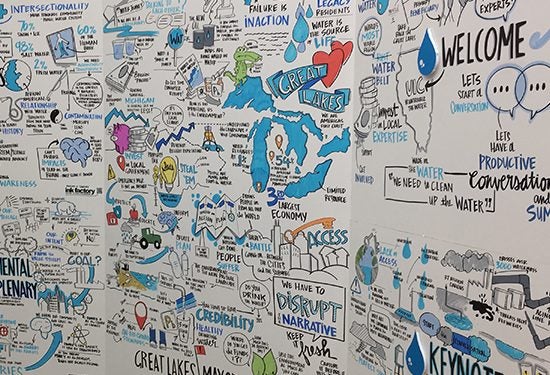
Freshwater Lab, an interdisciplinary English course
The Freshwater Lab is a cross-listed course between the departments of English, History, and Public Policy which introduces students to the environmental humanities and promotes greater awareness and political engagement with the Great Lakes. In the Humanities “lab” setting, students study the social and ecological dimensions of the Great Lakes, meet with Great Lakes leaders, visit places where water and people meet, and work on projects to advance existing initiatives and pioneer new approaches. Students will also have the opportunity to enroll in a new Freshwater Lab internship program. This course counts towards the Media, Rhetorical and Cultural Studies concentration, or it can be taken by others as a major elective.
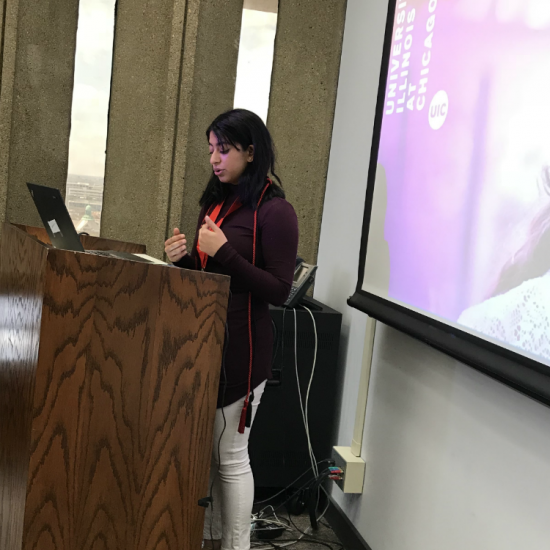
Undergraduate research: preparing you for what's next
ENGL 379: Independent Study and ENGL 497: Senior thesis are open to upper-level English majors who wish to pursue topics of study not offered in
the regular curriculum. Employers in all career pathways consistently cite the skills developed by English majors at the top of their lists of desirable
qualities. These include writing, editing, and communication skills, the ability to work independently, project management, the ability to analyze and interpret information, and the ability to think critically. Students conducting independent research under the supervision of a faculty mentor hone all of these skills.
